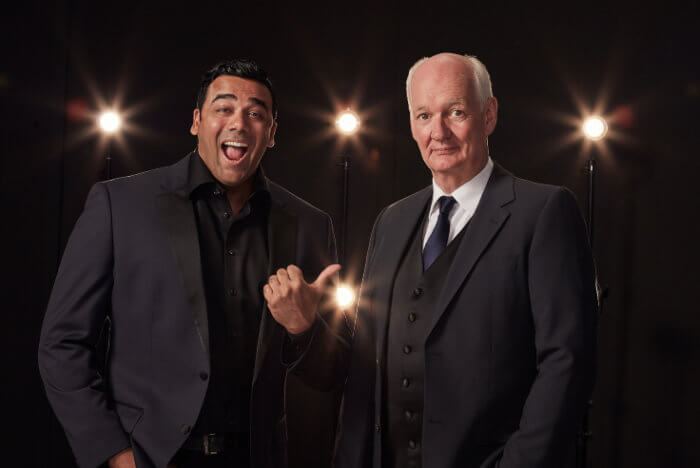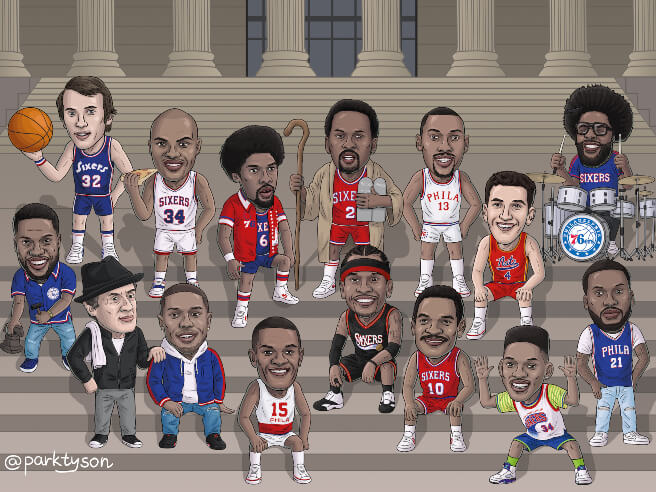Polly Mope is more than just a clever spoonerism. This witty, realistic, educational and highly entertaining one-woman show showcases one of the loudest hidden struggles a human can go through- getting through the night. The show’s leading lady Molly Pope is no stranger to the stage, or to the stigma behind mental illness in our country. Pope is manic bipolar II, but instead of allowing her diagnosis to define her life, the actress decided to use it as a tool to both educate and entertain. Pope sat down with Metro to tell us more about her show, delve into why breaking down stigmas is paramount and explain why everyone sometimes has trouble making it through the night, diagnosis or not.
Molly Pope is hitting the stage with her one woman show while also breaking down the stigma behind mental illness
When did you first get the idea for the show?
The show itself probably about ten years ago, but growing up my Dad was a huge fan of spoonerisms, thats when you swap the first letter of a keyword phrase. So Molly Pope to Polly Mope has been something that’s been rattling around in my life for quite some time. But probably about ten years ago was when I had that realization that stuff that I had been dealing with in terms of mental illness and emotional disorder and being a creative person started to materialize in oh you need to do something creative with this.
Why did you want to make this a one-woman show?
I’ve found that with solo performances, it really is the best place for me to I guess, showcase my talents. I’ve done plays and I’ve done musicals but for the most part, I’ve been a cabaret performer for about 12 years. As I’ve gotten older it’s become more and more clear that solo performances seem to be the best medium for me to express myself.
When you were rehearsing the show would you rehearse in front of other people or did you want to keep it as more of a personal experience?
It’s been a little bit half and half. I do have a tendency to sort of want to go away and lock myself in a room and sit with stuff and figure it out because it’s very sensitive material. But I started working on this project in the fall of 2016, so it’s been a gradual getting used to putting it on its feet, and I am at the point where I’m rehearsing in a room with my director. But I did rent out a studio space and invited a bunch of people because I wanted to put it on its feet in its current form in front of other people. So it’s been a gradual process of bringing it more, and more and more out in front of people.
The show tackles the question “how do you get through the night?” How are you going to be tackling that question in the show?
Well, it is the literal structure of the show, it starts with me getting home at the bottom of my stairwell and we leave it open-ended. Do we actually make it through the night? Does the show end before we make it through the night? But the set-up is that every night is like an obstacle course that I have to run from the time I get home until the dawn. So we’re just going to see what happens on this particular night.

What do you hope audiences will take from the show?
I struggled a long time with working on it because it felt very self-centered. [I thought] If this is just you wanting to vomit your feelings on stage in front of a paying audience– I can’t really get behind that. But it became clear that since I am manic bipolar II, I am able to be somewhat articulate about it– and I’m also a performer. So I realized that it can be useful, me getting on a stage and saying hey, I’m manic bipolar II and it doesn’t make me incapable of living a full life, I actually can, but it is something that I have to pay attention to and take care of. So I think, for a lack of a more sophisticated way to put it, the show does on one level try really hard to fight the stigma, and I would hope that some people would have an experience or recognize it as something they go through. Or I hope that other people might say oh I have this relative who’s manic bipolar II and I had no idea what that meant. There is a level of education, and then there’s also just a level of entertainment, but my hope is that in addition to the specifics about mental illness I’m also trying to tap into the concept that getting through the night can be difficult for anyone for a million different reasons. A lot of people have things that are not a mental illness but are perhaps similar in that they can’t be just easily be dealt with or put in a box and just put away. This is an ongoing thing.
With the stigma surrounding mental illness, was your diagnosis something that took you a while to talk about? Or were you always more open with it?
I think that I’ve always been more open with it, I don’t know how responsible I was with it before the past couple of years. I think I was a bit of a loose cannon, but I’ve never been one to be very reticent. That’s certainly affected a lot of personal relationships, and I’ve heard through word of mouth that it’s affected professional relationships. People have sort of thought, oh I don’t know if I want to work with her because she’s manic bipolar II. That’s sort of judging it without giving it a chance to show you yes this is part of my life, but not all of my life and it doesn’t dictate who I am.
































